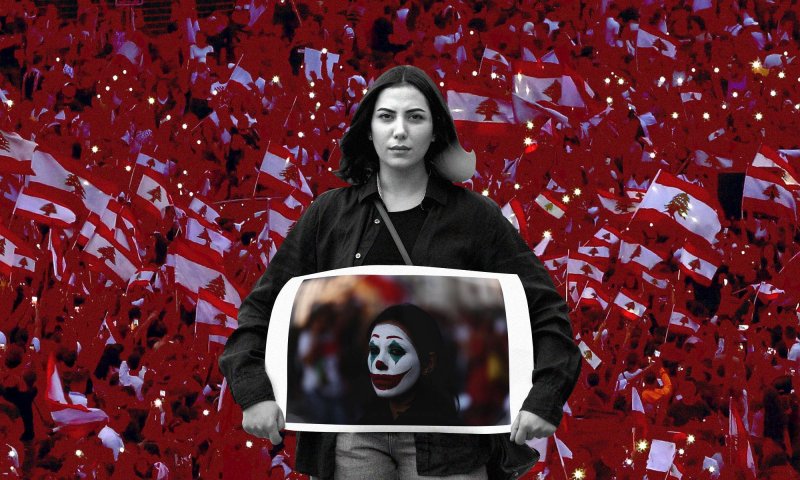The revolution of the Lebanese is a revolution of the repressed, the revolution of those silenced and banned from talking – about the basic necessities of life, about existence… it is the revolution of a people who had no right to appear inside the country's image and on its scene, who do not resemble "Lebanon's civilized face." They took down this vacuous maxim and have now become the face of Lebanon. It is also the revolution of women, who are repressed and prohibited from existing.
Lebanese women revolted in this uprising, and established their presence in the public arena. "We are here", not only as bystanders but with full comprehension of how to move within that space with full confidence. They're also here with their voices, their chants "We are here" are so convincing, the men are chanting to their tune now.
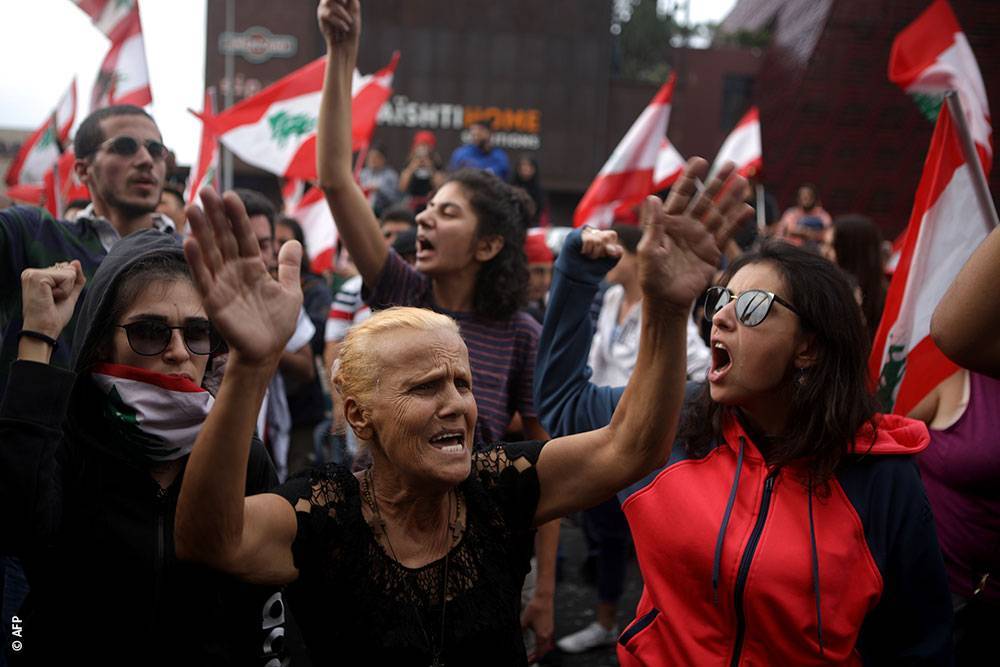
Women are raising their voices for freedom, equality and for the downfall of a repressive regime. They debate gently when needed, they sing and dance and take the initiative to convince whenever needed. Some young men turn on the loudspeaker to play the songs of Julia Boutros, only for one of the women to approach them calmly and confidently, succeeding in turning the loudspeaker off and negotiating with the young men to turn off the voice of that who they believe is part of the regime.
#Women are raising their voices for freedom, equality and for the downfall of a repressive regime. They debate gently when needed, they sing and dance and take the initiative to realy the message when needed. #LebanonProtest
The brave story of a woman who stood up to a judge who wanted to drive through their sit in. Men in Lebanon are convinced it's a man's world, women may not tell men what to do, especially privileged men, this revolution is for women too. #LebanonProtests
#Lebanon’s women are repeating chants with insults; vulgarity used to be the reserve of men, while women were always expected to keep their civility – while others protest the patriarchal insults that use their body parts to offend.
Women in different areas, of various social backgrounds took to the streets to reject the injustice they face; some of them raise their voices against the country's courts, others battle with the capitalist system, looking forward to a better tomorrow, rejecting military rule because they know the meaning of repression.
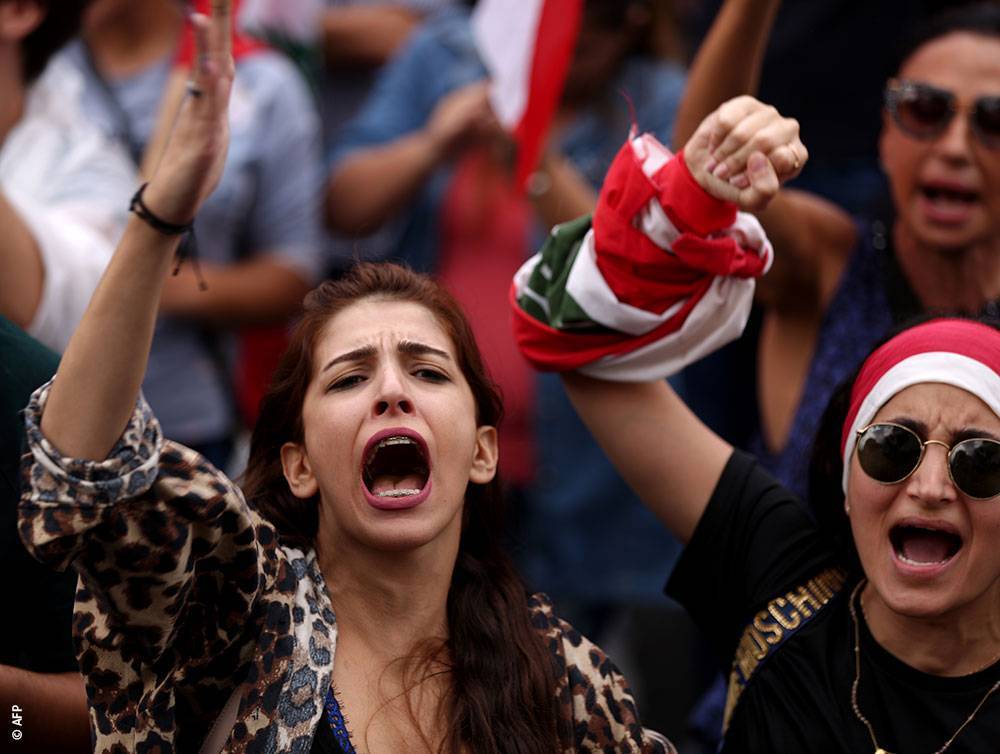
Women are repeating chants with insults; vulgarity used to be the reserve of men, while women were always expected to keep their civility – while others protest the patriarchal insults that use their body parts to offend.
They do not fear clashes with security forces in sensitive times. Their anger is explosive because they want what all the protesters want, but also because it is the anger of those deprived from their rights because of their gender. An anger against the violence of past decades against them, an anger at being prohibited from passing on their Lebanese nationality to their children, an anger at the deprivation of their right of child custody; an accumulated anger at their inability to walk on the streets safely in this city; an anger at those who have been missing since the war, who the state is still unable to reveal their fate.
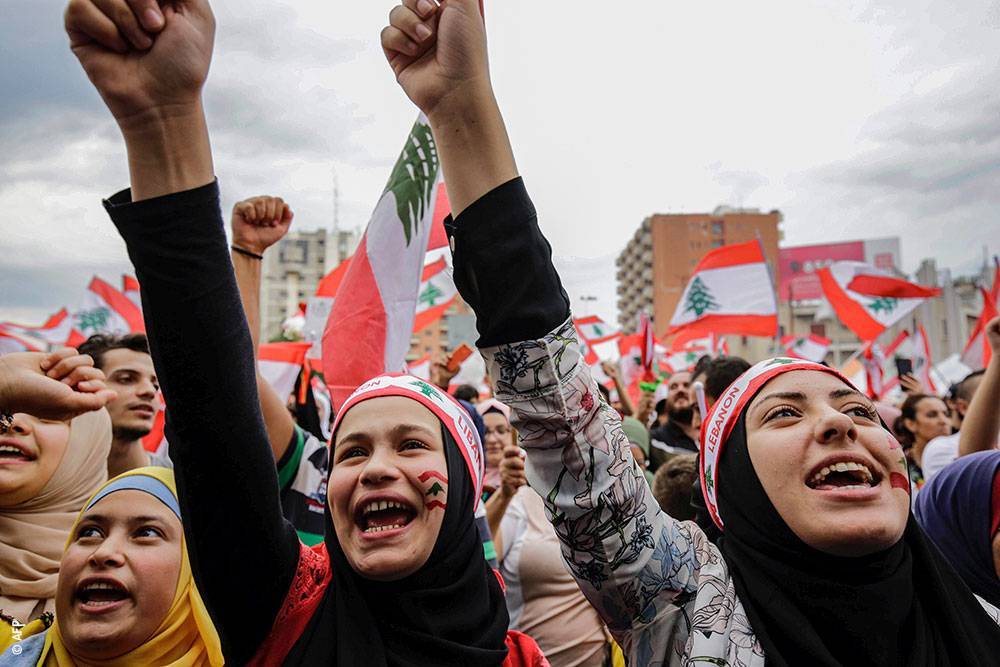
In every area, and in every street, women are present to say "no", "no" to all forms of repression and deprivation. They form groups, discussing what could be done, consulting amongst each other: "what should we do to continue our path?"
They continue chanting against the regime while praising and saluting the other revolting regions elsewhere in the country; they organize demonstrations in residential areas in order to reach out to people; they hold sit-ins in front of banks; they do not forget the workers who suffocated in a building fire and call on everyone to join a symbolic vigil to refuse the exploitation of workers and the system of 'kafala' (sponsorship).
Their revolution is all-encompassing, a revolution against this regime. A group of them takes the initiative to prepare a simple meal for those who have been at the sit-in throughout the day; a group of them disseminate across the city's streets and neighborhoods to spray graffiti on walls with slogans refusing the rule of Solidere and the banks; another group is set up through coordination amongst them to obstruct roads: no mission is difficult, every one of them can do what is required of them.
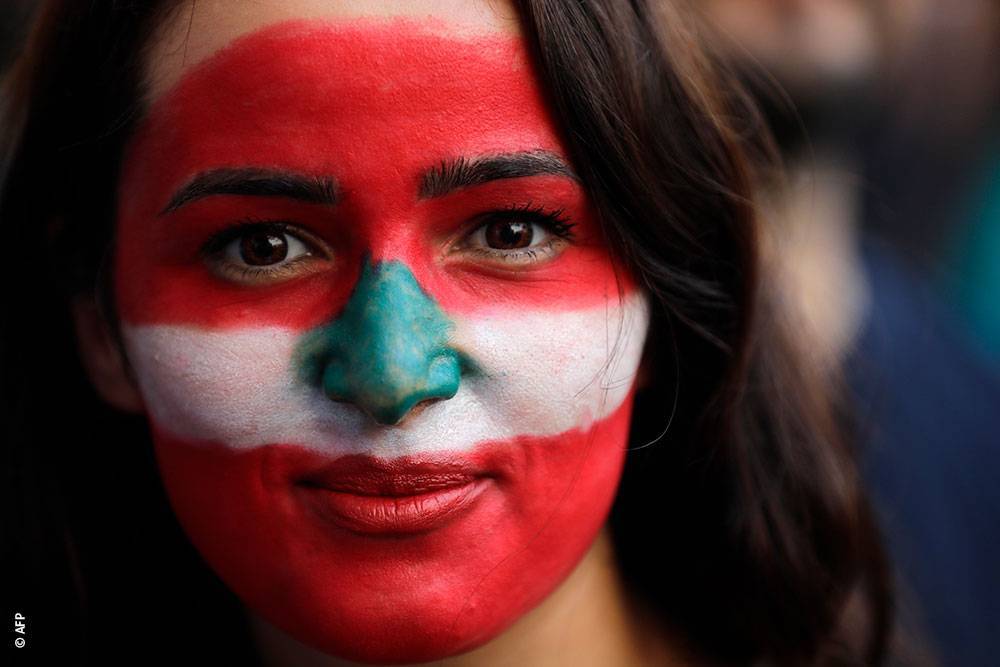
They wake up at the break of dawn and proceed to obstruct roads, spreading out in small groups near their places of residence. They obstruct the road through every possible means: sitting in the middle of street, dragging pieces of wood from the surrounding perimeter, deploying steel barriers from the side of the road, using rubbish bins to block the street and stand chanting, with a smile on their faces, to direct their fellow citizens to secondary (subsidiary) roads.
In every place in every area, men try to impose themselves, men try to silence them saying: "We have to go to shut down the roads, the place for women is at home, not there." Not this time, women will not be told that, they were there before men.
One of them sits on a tire in the street and says "I'm here", I won't move to allow anyone to pass. A court judge arrives in a car with tinted glass, positioning himself opposite her and insisting on passing. Her comrades all assemble to block him and their voices are raised against him. He insists on passing through while they direct him to other roads that he can take instead of this blocked one. She continues to stand stubbornly and calmly in front of him, only for him to move the car forward, trying to push the girl impudently, only for her to remain in front of the car with courage and steadfastness. He remains in his place and calls the gendarmerie for help; his insistence is now a matter of spite – he doesn't want to stand down and compromise. A police patrol arrives to try and convince the protesters to let him pass, only for them all to sit in the middle of the road, and begin chanting against the "connections" of the privileged. His stubbornness in front of their revolution continues for half an hour; they are the strivers for their economic, social and gender rights, and he is the representative of a regime of repression, patronage, favoritism, and patriarchy. He withdraws but doesn't give up, sending them men from the intelligence agencies (mukhabarat).
He who never experienced someone opposing him and saying "no" will never agree to compromise with his fellow citizens, who he is supposed to work on the behalf of in the pursuit of justice. A male who uses all of his social and authoritative privileges in order to exercise all possible forms of repression against those revolting women who provoked him with their sense of freedom, daring and boldness which he is not used to – and which he fears will lead to his loss of authority, whether in terms of class or patriarchy.
They help each other, they speak about what must be done for protection if the situation escalates; their only worry is that one of them is taken for investigation and that they lose hours of these beautiful and historical moments. No fear, ever. It is their revolution also against this inherited fear. Glory to those who said 'NO'.
Raseef22 is a not for profit entity. Our focus is on quality journalism. Every contribution to the NasRaseef membership goes directly towards journalism production. We stand independent, not accepting corporate sponsorships, sponsored content or political funding.
Support our mission to keep Raseef22 available to all readers by clicking here!
Interested in writing with us? Check our pitch process here!
